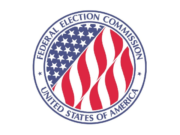Surprised to find the denizen of the campaign finance regulatory community coming out against disclosure of all campaign contributions? So were we.
But what else can one make of Wertheimer’s column this week in The Puffington Host, in which he writes:
In the constitutional system envisioned by our founders 225 years ago, individuals get one vote.
In the system created by the Supreme Court in 2010, Sheldon Adelson gets 100 million votes. Tom Steyer gets 73 million votes. …
Never has the foundational constitutional principle of one person, one vote been so undermined by a Supreme Court majority that apparently believes money is king.
But if each dollar is a vote… well, surely Fred Wertheimer supports the secret ballot? So what else can we think but that, campaign contributions being votes, they shouldn’t be disclosed?
Or maybe this is just more silly cynicism from Wertheimer, grabbing whatever hysterical argument he thinks might excite his base of support in his lifelong crusade to limit political participation. Indeed, Mr. Wertheimer’s integrity gap is on display throughout the column.
For example, he writes:
In 2010, five Supreme Court Justices — Roberts, Kennedy, Scalia, Thomas and Alito — changed it to a constitutional system of government by millionaires, billionaires and corporations.
First, there is the rhetorical dishonesty of the “millionaires, billionaires” bit, a line popularized by the Obama Administration. Do you know what the relative difference is between a millionaire and a billionaire? It’s the same relative difference as that between earning $50,000 and $50 million a year. Would you put those in the same group? It’s something of a minor point, but it’s a signal that the speaker isn’t serious – that it’s either thoughtless rhetoric, or an argument not made in good faith. More substantively, of course, Wertheimer is working the hysteria that he and others have built up around the Supreme Court’s 2010 decision in Citizens United v. FEC. The goal here is to make it seem that Citizens United was a dramatic break, a lawless maneuver. But it was not Citizens United that allowed “millionaires and billionaires” to cast “100 million votes” or “73 million votes” – that was the 1976 decision in Buckley v. Valeo, and corporations’ right to do the same – at least in ballot measures – was originally affirmed, if not in Buckley (where the question was not squarely presented), then in the 1978 decision in First National Bank of Boston v. Bellotti. It was a brief interlude of less than 20 years – from Austin v. Michigan State Chamber of Commerce in 1990 until Citizens United in 2010 that the Court held otherwise.
Of course, there are some inadvertent truths in Wertheimer’s column. For example, he writes:
Never has a Supreme Court declared that the right of a corporation to spend money in elections trumps the right of a nation to protect itself from the corruption of its governmental institutions.
Never has a Supreme Court held that buying and selling government influence is constitutionally protected and the American way.
Well, yes, that’s right. The Supreme Court never has, to this day, declared the former or held the latter. So give Fred credit. Or don’t, since what he’s trying to claim, of course, is that the Supreme Court did do those things in Citizens United. Of course, I look silly, I suppose, acting as if such comments were intended to be taken literally, when we all know they are not. But that’s my point – the movement for “reform” that Wertheimer has headed for 40 years has reached the point, it seems, where all it can do it screech out silly slogans and catchphrases that do nothing to enlighten the listener to the actual issues involved – and frankly, that are not intended to do so.
The reality here is much more in line with what Justice William O. Douglas wrote in United States v. United Auto Workers: “Until today political speech has never been considered a crime.” Since we’re being literal here, we might note that this, too, was a bit of excess – “seditious” speech has often been considered a crime, though not, we usually believe, to the credit of those proposing such. But Douglas’s intended point was correct. Prior to the modern “reform” movement (1975 to be precise), the United States had never placed general limits on the ability of an individual to contribute to a campaign or to spend his or her own money to support a candidate (Buckley, of course, left intact the former while striking down the latter; Citizens United struck down the latter for incorporated entities as well).
Wertheimer asks us to believe that in less than five years “our political system [has] been … wrecked” by Citizens United. We’re not so sure most Americans would agree, and, indeed, Wertheimer has argued for decades that our system was wrecked and that he had the cure. But our political system today is more heavily regulated than at any time in our nation’s history prior to 1974, and in many ways, more heavily regulated than at any time prior to 2003 and the passage of the McCain-Feingold law. Maybe, if the system doesn’t seem to be working so well, we might ask more seriously when the wreckage began. A good starting point – one that certainly seems more probable than 2010 – might be the early 1970s, when Fred Wertheimer and others convinced Congress to impose restrictions on political contributions, and got the Supreme Court to go along.
With the failure of this type of top-down, speech restricting campaign finance “reform” all too obvious, there’s not much left but heated, empty rhetoric, which even the speaker, we suspect, doesn’t take seriously.














